Mr Mercury. Ilya Ilyich Mechnikov
The house where the Mechnikovs lived was old and small, and soon Ilya Ivanovich built a new one in the nearby estate Panasovka. It was there that the childhood years of young Ilya passed. The family environment surrounding him was warm. Mechnikovs lived on the income from the leasing of land on the estate. The future world-famous biologist had three brothers and a sister, Catherine. By the way, all the brothers turned out to be very talented people - the elder Leo became a well-known geographer, sociologist and revolutionary leader, participated in the national liberation struggle in Italy. The other two reached the heights in judicial field. Elijah, from childhood, was distinguished from them by an extraordinary love of nature, its laws and secrets. The boy enthusiastically collected herbariums, knew the local flora and fauna, kept lizards, frogs and mice alive. In addition, he grew up an extremely restless child, for which he received the nickname “Mr. Mercury” at home.
Having received an excellent primary education at home, Ilya was enrolled in 1856 in the second Kharkov gymnasium. During his studies, he was distinguished by a rare non-standard of thinking - a case is known that once a teacher of Russian literature, having read an essay by Ilya to a class, said with surprise: “Gentlemen! In this work, the schoolgirl of Mechnikov denies the existence of God ... Now what, sir, should I do now? If I show this essay to my superiors, you will be immediately expelled. If I do not do this, but the authorities become aware of him, I will lose my service for connivance. What do you want to do? .. Take your essay, I hope that there is not a single bastard in the class. ” Pupils of the teacher did not disappoint, but the future biologist from his gymnasium comrades received the nickname "There is no God."
Already in the gymnasium, Ilya ceased to be engaged in those subjects that he had identified as unnecessary for himself. At the same time, thanks to the phenomenal memory, he successfully passed exams. To the "necessary" disciplines, he attributed geology, botany and natural history. Mechnikov himself later recalled that in the gymnasium “they were sympathetic to scientific aspirations, not suppressing them with the demands of classical wisdom. Greek was eliminated, and Latin reduced to an unimportant formality. At the same time, the study of natural sciences was introduced, which attracted particular attention of young people. ” Ilya Ilyich can be described as “a man of early maturation”. The gymnasium could not satisfy his early scientific inquiries. Studying in the second grade, eleven-year-old Ilya met the works of the German zoologist Heinrich Bronn. The illustrations of the corners, ciliates and amoebas amazed the teenager so much that he decided to devote himself to the study of the animal world. At the age of twelve, Mechnikov was presented with a microscope, and he began to study the structure of unicellular organisms. While studying in the sixth grade, he voluntarily attended a lecture on comparative anatomy at the University of Kharkiv, and after graduation he asked the professor for permission to work in his laboratory. The adolescent’s natural refusal did not upset him; he soon began to take lessons from the famous Russian physiologist Ivan Schelkov, who had returned from abroad. Not having finished the gymnasium yet, the young researcher, on the basis of his observations on the simplest ones, wrote the first article in one of the country's scientific journals.
The visiting school as a volunteer high school student Mechnikov was the best student in the class, and on the 1864 exams he struck teachers with a breadth of knowledge, maturity of scientific thinking and the ability to analyze facts. At the same time, the graduate himself dreamed of a trip abroad, arguing at the family council the need for training in the laboratories of leading Western European scientists. Emilia Lvovna took the side of her son, and soon the seventeen-year-old youth set off on his first trip abroad. Würzburg, where Elijah was going to study, met him coldly. It turned out that Mechnikov arrived during the vacation time, that is, when all the students and professors had left for rest. It was unbearable for the young man to wait until the start of classes for a month and a half, and Illya went back to his homeland with the first train.
At home, everyone was happy for him, and Illya decided to enter the medical faculty, but his mother dissuaded: "You have an overly soft heart, you cannot constantly see the torment of people." Thus, Mechnikov began his studies in the natural department of the Physics and Mathematics Faculty of Kharkov University. And soon Professor Shchelkov, with whom he had been familiar for a long time, suggested that the young man perform a series of studies on ciliary infusoria to find a physiological analogy with the muscle tissues of higher organisms. Ilya gladly took up the task. The result of this work was his conviction that there is no analogy between ciliate organelles and muscle tissue. The findings of the student confirmed Schelkov, and Mechnikov's first experimental work was published in 1863 in Germany. And almost immediately, the fire of criticism fell on the young author. Renowned German physiologist, honorary doctor of medicine, Willy Kühne, in a dismissive tone, refuted the data obtained by students of Kharkov University. Not wanting to ignore criticism, Mechnikov again took up the microscope and rechecked his observations. The answer of Ilya Ilyich to the maitre with the substantiation of the correctness of all the conclusions was also published in the press, and the victory in the first scientific duel was left for the young student.
Studying at the university was easy for Mechnikov, and he finished the first academic year with the highest marks in all subjects. And then the unexpected happened - a talented young man decided to leave the institution. In vain he tried to convince the university rector, a stubborn student, without explaining anything, stood his ground. As a result, a resolution was put on his statement: “Issue documents, exclude the applicant”. For a whole year after that, Mechnikov studied independently, studying various university courses. He barely left his room full of books. Twice a day, Emilia Lvovna brought food to her son, and tried to persuade him to get some rest, but Ilya Ilyich always answered her: “Now is not the time for rest.” And next spring (1864) Mechnikov submitted a new petition to the rector of Kharkov University: “Your Excellency, I humbly ask you to allow me to listen to fourth-year lectures at the Faculty of Mathematics and Physics ...”. Ilya Ilyich brilliantly passed the necessary exams in chemistry, botany, geology, mineralogy, physical geography, physics, zoology, agriculture, physiology and comparative anatomy. So in almost two years he graduated from a university course.
From now on, Mechnikov's goal was to obtain the degree of candidate of sciences, for which he needed to carry out an independent scientific work. He chose the German island of Helgoland as a place to collect material. The university council was bothering the Ministry of Education about appointing a gifted young man with scholarships, but the minister’s resolution was extremely simple: “Refuse for lack of funds.” Then Ilya turned to his relatives. Despite the difficult financial situation, Mechnikov’s parents allocated him the necessary funds. Helgoland shook Mechnikov with an abundance of sea animals. In any inclement weather, a thin and sickly youth, wet to the skin, wandered along the shore, seeking out the sea creatures thrown on the shore. Since there was very little money, Ilya Ilyich did not rent a hotel room and stayed with a local fisherman. And in order to stay on the island for a long time and complete his research, he actually starved, eating, in his own words, “what God sends.”
In early September, 1864 Mechnikov arrived in Giessen at the all-German congress of natural scientists that was held here. Speaking at a scientific meeting with two reports, Ilya Ilyich was the youngest participant. His work was warmly received, the hall applauded the young researcher from Russia. And in 1865, thanks to the recommendation of the renowned surgeon Nikolai Pirogov, the young scientist was allocated a state scholarship to conduct research in the laboratory of the famous German zoologist Leykarta. Mechnikov himself at that time conducted research on roundworms. Investigating the reproduction of nematodes, he was able to detect in these animals the phenomenon of heterogeneity (alternation of generations with intermittent forms of reproduction), previously unknown to science. Professor Rudolf Leikart became interested in the results of the Russian scientist, considering that, since the discovery was made in his laboratory, he also has a bearing on him. He offered Ilya Ilyich to work together, and Mechnikov agreed. However, soon the hard work behind the microscope manifested itself - Mechnikov started having serious eye problems. While he was restoring his sight, Rudolf Leikart managed to publish the materials of his research. With surprise, Ilya Ilyich read in the Göttingen Gazette an article about nematode worms, in which the professor described in detail everything that Mechnikov told him, as well as what he had managed to accomplish during that time. Metchnikov did not want to believe his eyes - the article was signed by one Leuckart, indicating all of his government and academic officials. Ilya Ilyich, indignant to the depths of his soul, tried to meet and talk with the professor, but he invariably avoided contact. Then the young biologist wrote a devastating article, in which he accused Leuckart of misappropriating other people's discoveries, and went to Italy.
There, at the Neapolitan Biological Station, Ilya Ilyich met another prominent Russian biologist, Alexander Kovalevsky. It is impossible to imagine people more different in temperament and character than Kovalevsky and Mechnikov. Alexander Onufrievich was a quiet, shy and reserved man. Ilya Ilyich, on the contrary, was always active and passionate, his life was in full swing. Nevertheless, as soon as they met, they immediately experienced mutual sympathy, which grew into a fruitful long-term friendship and cooperation. Beginning with 1865, young scientists have published many works on the embryonic development of invertebrates, hitting the entire scientific world with them. These works not only proved the common principles of development of invertebrates and vertebrates, but also formulated a number of basic laws of development of multicellular organisms. At the same time, Mechnikov met another great scientist, the Russian physiologist Ivan Sechenov, who lived in Sorrento. He recalled their first meeting: “I went out completely fascinated by the new acquaintance, recognizing in this person“ teachers ”.
In subsequent years, Ilya Ilyich confidently moved along the path he had chosen - at the age of twenty-two at 1867 he became a master of zoology, and at 1868, when his friends only graduated from the university, a doctor of zoology. Both dissertations he defended at Petersburg University. In 1867, after defending his master’s thesis, Mechnikov and Kovalevsky were awarded the Prize Institute for Investigation of Invertebrate Embryology. Academician Baer - a classic of Russian embryology. In the same year, Ilya Ilyich was elected an associate professor at the University of Novorossiysk, and a year later an associate professor at St. Petersburg University. And at 1870, at the age of twenty-five, Mechnikov won a prize for the second time. Karl Baer.
After receiving his doctorate, Ilya Ilyich moved to the northern capital of Russia, where he began to teach comparative anatomy and zoology. He did not have a laboratory for research, and the scientist worked, without removing his coat, in an unheated museum between shelves with zoological collections. He lived in a cramped apartment on Vasilyevsky Island, and the lack of money forced him to farm himself. To meet the immediate needs, Mechnikov began to work - to give lectures at the Mining Institute. The students of the institute were not interested in zoology, but Ilya Ilyich, reluctantly, tolerated this work. One of his closest friends at the time was a professor of botany Andrei Beketov. Mechnikov — open and sociable — easily converged with people and soon he became acquainted with the family of Andrei Nikolaevich — his three daughters and niece Lyudmila Feodorovich. In a big and noisy city, he was extremely lonely, and the world in which he came to life and warmed his soul became for him the Beketovs' house. When Mechnikov became seriously ill, they took him to their place. Beketov's niece cared for the sick, talked to him, keenly interested in everything that bothered the scientist. Two weeks later, Ilya Ilyich recovered and returned to his closet. And soon Lyudmila Vasilyevna fell ill. Mechnikov wrote: “A healthy and strong young girl had a cold before. The doctors said, "A little patience and everything will pass!" However, the common cold did not go away, leading to a general emaciation. ” Soon, the doctors discovered that she had tuberculosis. Now Ilya Ilyich already spent all his free time near the patient. Over time, a sympathy arose between them, which grew into love. Mechnikov asked his parents for consent to the marriage and received it. However, even the attendant wedding joy could not improve the condition of the bride. Ilya Ilyich desperately fought for the life of his beloved. Medicines demanded a lot of money, and Mechnikov did everything to earn them - pored over the translations until late at night, he taught at the university and the Mining Institute. He could not disturb his relatives, as they themselves did not live sweetly. Despite all the measures taken, Lyudmila Vasilievna faded away every day. Then Ilya Ilyich with great difficulty knocked out a business trip and in January 1869 and his wife went to Italy.
There, his wife became better, and by the beginning of the school year, he was reassured by one that returned to Russia. Upon returning to his homeland, Ilya Ilyich, puzzled by the search for money, with the support of Sechenov, proposed his candidacy for the vacant seat of the head of the zoology department at the Medical-Surgical Academy. However, it was very difficult for Mechnikov to get this position. The fact was that the scientist allowed himself to criticize the works of the first congress of natural scientists in the journal Otechestvennye Zapiski, rightly stating that they do not reflect the true state of affairs in Russian science, since they contain no works by Sechenov, Mendeleev, Zinin and many other brilliant scientists. Of course, the criticized colleagues did not cherish warm feelings for Ilya Ilyich, and while waiting for the issue to be resolved, the university council found it more convenient to get rid of the scientist for a while by proposing to Mechnikov a new trip abroad.
Agreeing, Ilya Ilyich returned to his wife and with her went to the French coast in the town of Villafranca, where he studied the caught sea animals. He was never admitted to the Medico-Surgical Academy. The council of the educational institution did not need a biologist, which the entire academic world already knew about. Fortunately, at the same time this message came another message from Odessa. Professor of Botany Lev Tsenkovsky invited Ilya Ilyich to take the place of an ordinary professor of zoology at the University of Odessa. It was a salvation. Having visited Switzerland, the Russian scientist and his wife came to their relatives in Panasovka. His mother, Emilia Lvovna, did everything to alleviate the state of the daughter-in-law, but neither care nor treatment helped. Then Mechnikov decided to send his wife back to Switzerland, and he left for Odessa. And soon after starting work at a new place, he learned that his old friend Ivan Sechenov was forced to leave the Medico-Surgical Academy, stopped all scientific work and was having a hard time forcing inaction. Wanting to help him, Ilya Ilyich organized a whole campaign for the translation of Sechenov, and in 1871 Ivan Mikhailovich took the place of the head of the department of physiology at Novorossiysk University.
At the same time, alarming news about the state of his wife came to Mechnikov, and Ilya Ilyich decided to take her to Madeira. Sechenov wrote in his memoirs: "Without any means, with a professorial salary, he took his wife to Madeira, intending to save her, denying himself everything and not saying a word about it." At the new location, Lyudmila Vasilievna felt better, but the rocky shores of Madeira did not provide Mechnikov with any material for research, and the university that sponsored the trip regularly consulted about the results. Soon he had to return home, and his wife's sister replaced him at the bedside.
Ilya Ilyich buried his spouse 1873 in April. Being in a deep depression, the scientist destroyed most of his papers - the most valuable scientific documents. Sechenov wrote to him: “Take care of yourself! It is not the prosperity of the natural faculty that will depend on your activity, but its salvation — the present bosses will turn the university into a district college. I can’t do anything against it, whereas you have a terrible means to subdue reptiles - ridicule. ” However, Mechnikov was so depressed that he tried to commit suicide by taking a deadly dose of morphine. But the poison, not having time to get into the bloodstream, caused vomiting.
Saved the scientist work. For the eleven years he spent in Odessa, Ilya Ilyich occupied a prominent position in the educational institution and in the public life of the city. One of the students of Mechnikov wrote: “A wonderful lecturer, setting forth the most intricate questions of science with amazing clarity, he was famous for being extremely accessible, simple and loving to young students ... The whole movement, passionate speech flowed in a torrent, illuminated by demonstrations and drawings, colored chalk flickered in hand. The brilliant comparisons snatched from life amazed with the figurativeness and accuracy. His words were captured and raised to unattainable heights, introducing the latest achievements of biology, but these words passed through his deep sharp criticism. ”
In 1874, in the house where the scientist lived, the Belokopytov family settled, in which among the ten children were two older girls, Olga and Katya. It so happened that Ilya Ilyich, who gave Olga lessons in zoology, became interested in his student. Their wedding took place on February 1875 - the bridegroom was twenty-nine years old, and the bride was only sixteen. In 1877, Olga Mechnikova successfully passed the exams at the gymnasium and received the status of home teacher. She played a huge role in the life of Mechnikov - not only as a loving wife, but also as an experienced assistant, assistant, and later biographer.
In March, 1881 in St. Petersburg thundered an explosion, breaking off the reign of Alexander II. Political trials began throughout the country, and arrests began among students at the University of Novorossiysk who spoke out against terror and police surveillance. The professorship did not stay aside. Many, including Ilya Ilyich, came out in defense of their students who got into the police. And soon a new rector appeared at the university, with whom Metchnikov could not find a common language. He made the decision to leave the school and soon afterwards he had built a school on the professorial salary he had received at the time of his retirement. In the same years, a scientist, exploring the bread beetle, proposed an innovative pest control method at the time by infecting it with a pathogenic fungus. Circumstances did not allow Mechnikov to work further in this direction, however this example well shows how he was a universal biologist. Another curious fact from the biography of the great scientist - in April, 1881 Mechnikov, for unknown reasons, injected himself with the blood of a person who became ill with relapsing fever. Incredibly, the severe disease not only did not kill him, but also had a healing effect — the recovered scientist not only had a significantly improved vision, but also underwent mental changes, reducing the proportion of pessimism characteristic of him.
In 1882, Olga Mechnikova received a small inheritance, which allowed the spouses to go to Messina. It was there that the eminent scientist made famous observations of starfish, which became a milestone in medicine and formed the basis of his famous phagocytic theory. Subsequently, the Soviet microbiologist Lev Zilber wrote: “We must have a truly amazing gift of scientific foresight, so that from research on the reactions of the starfish to the thorn of the rose thrown into it, create a theory explaining the processes of the immunity of living organisms to infectious diseases.” This experience marked the beginning of a new era in the understanding of the protective devices of organisms that ensure their immunity to infections. In numerous subsequent experiments, the Russian biologist found out the enormous role of the microorganism in suppressing various infections, revealed the essence of inflammatory processes, explained the resorption of tissues during regeneration. Of course, at first his ideas were actively criticized, the scientist was called a “romantic”, they believed that he dumped on the nature “miracles” that were not inherent to her. However, Ilya Ilyich stubbornly argued his case and eventually won.
At 1886, together with his students, Mechnikov founded the first in Russia (second in the world) bacteriological station, which vaccinated rabies vaccine, created by Pasteur a year earlier. Later, they began to conduct vaccinations of livestock against anthrax. For two years he worked as its head, until one day he received another order for vaccinating sheep. Mechnikov himself was in his estate and entrusted the case to the students, who made a number of serious mistakes that led to the death of eighty percent of the animals from the four thousandth of the flocks. The outbreak of scandal was so loud that the government was forced to ban such vaccinations throughout Russia. In addition to these troubles, a revolt occurred in the estate of Mechnikov. One person died, and twelve were sent to hard labor. Nervous breakdown affected the work and health of the scientist, and in 1888 Ilya Ilyich once again went abroad. As it turned out, forever.
Having visited a number of Western European laboratories at 1887, the scientist opted for the new Louis Pasteur Institute, which the French government built specifically for research of the great microbiologist. Pasteur received Ilya Ilyich very cordially, immediately speaking of issues of interest to Mechnikov — the struggle of the organism with microbes. In this institution the Russian scientist finally found the calm haven that he had been looking for for so long. Mechnikov worked at the Pasteur Institute for the next twenty-eight years. At the beginning of his life in Paris, he did not break ties with his homeland. Every summer, he and his wife spent in his estate, visited Odessa, St. Petersburg, Kiev. Gradually, however, such trips became more and more rare. And then the Mechnikovs acquired a summer cottage near Paris and began to spend their summer holidays there.
In 1902, the Russian Academy of Sciences elected Mechnikov as an honorary academician. This was a belated recognition of his scientific merit, since by that time the name of the scientist thundered all over the world. By the way, having worked at the Pasteur Institute for almost three decades, Ilya Ilyich never accepted French citizenship. He paid special attention to Russian biologists and doctors who came to study with him. More than a thousand compatriots underwent training and training for Mechnikov, and among them almost all Russian bacteriologists of those years. Among the numerous titles and awards of a scientist, the honorary degree of the doctor of Cambridge University, the Copley Medal of the Royal Society of London, membership in the French Academy of Medicine and the Swedish Medical Society are worth noting. And in 1908, Ilya Ilyich (together with Paul Erlich) was awarded the Nobel Prize in medicine and physiology. It is curious that, according to the archives of the committee, for the first time a Russian scientist was nominated for an award back in 1901, that is, in the first year of its work. All in all, from 1901 to 1908, his candidacy was nominated by various 46 scientists! time.
However, fame did not turn Ilya Ilyich's head, he still continued to work a lot, studying the nature of diseases such as tuberculosis and syphilis, worked in the outbreaks of the cholera epidemic, made numerous experiments on animals, and often resorted to self-infection. Trying to devote all the time to science, Mechnikov secular receptions, official ceremonies and visits to guests, making an exception only in respect of congresses and conventions. It is also worth noting that the scholar passionately loved music and regularly attended opera. In Paris, the biologist made another unique discovery, not inferior in importance to the phagocytic theory, but assessed later. Ilya Ilyich was able to establish the presence of antibodies, which the scientist called cytotoxins, produced by the body to any foreign cells.
The older a biologist became, the more joyful and life-affirming his attitude became, he wrote: “In order to comprehend the meaning of life, you must live a long time; otherwise you are like a blind man who is told about the beauty of colors. ” By the way, Mechnikov believed that the limit of a person’s life was much more than a hundred years: “Human life has gone mad halfway, and old age is a disease that, like any other, must and can be treated.” While fighting for an increase in the length of a person’s life, Ilya Ilyich published his first philosophical work on the ability to “live correctly” in 1903. In it, the scientist, in particular, said that the cause of early aging are microbes of the intestinal flora that poison the body with toxins. The biologist offered to fight with them with the help of diets - to eat less meat and drink more sour milk products. Some modern companies still produce sour milk according to the “Mechnikov recipe.”
At the end of his life, an outstanding Russian scientist began to develop a unique medical-philosophical system. In his most famous works - “Etudes of optimism”, “Etudes about human nature”, “Forty years of searching for a rational outlook” - the scientist expressed his attitude to the issues of longevity and aging, life and death, the imperfection of man and the achievement of this perfection. By that time, the scientist had passed for sixth dozen, but his performance and clarity of thought were amazing. In 1911, Ilya Ilyich took charge of the expedition of the Pasteur Institute to the Kalmyk steppes, which was to study the spread of tuberculosis there. And since the Russian expedition to research the plague was sent to the same lands, the biologist agreed to head it. Difficulties suffered during the trip, feelings and deprivations affected Mechnikov’s health. During the whole campaign he remained vigorous, infecting others with his cheerfulness, but when the expedition participants gathered in Astrakhan after a successful end, Ilya Ilyich felt bad. He started having heart problems, the biologist suffered from pain along the chest.
Warmly saying goodbye to the local bacteriological doctors, nameless heroes, leading the incessant struggle against terrible diseases, Mechnikov returned to Paris. Upon arrival, Ilya Ilyich turned to the doctor, who, after listening to his heart sounds, found noises on the aorta and at the apex of the heart. Despite the treatment, in the fall of 1913, the biologist had a severe heart attack. After it became easier for the scientist, he asked for the paper and wrote: “During the seizure, my mind did not show the slightest damage, and I, which makes me especially happy, was not afraid of death, although I expected it ... In general, I am consoled by the consciousness, that I did not live meaninglessly, and I am pleased with the idea that I consider all my worldview to be correct. ”
News about the beginning of the war was for Mechnikov a real blow. He said: “How is it possible that in Europe, in a civilized land, they failed to come to an agreement!”. Ilya Ilyich described the current state of affairs at the Pasteur Institute as follows: “The institution’s activities have completely ceased. Laboratory animals for fear of leaving no food were killed, thus depriving those who work to conduct research. The institute sheds were filled with milk cows, whose milk is sent to orphanages and hospitals. Most of the employees, ministers and assistants went to war, only the old men and the female servants remained. ”
Due to the impossibility of continuing his experiments, Mechnikov began to write a book about the founders of modern medicine. He wrote it not for the medical profession, but for “young people who ask themselves the question, what to do with their work”. The eminent scientist was convinced that the war "would discourage people from fighting for a long time, causing them to have more reasonable work." He also added: “And those who do not have a warmer fervor, let them send it to war against enemies in the form of a huge number of microbes, seeking to take over our body and prevent us from carrying out the full cycle of life.” Despite wartime, the book Mechnikov enjoyed tremendous success.
Ilya Ilyich died on July 15 1916 after another attack of cardiac asthma. According to the testament of the great biologist, the urn with its ashes was delivered in the library of the Pasteur Institute.
According to the books of O.V. Taglinoy "Ilya Mechnikov" and S.E. Reznik "Swordsmen".
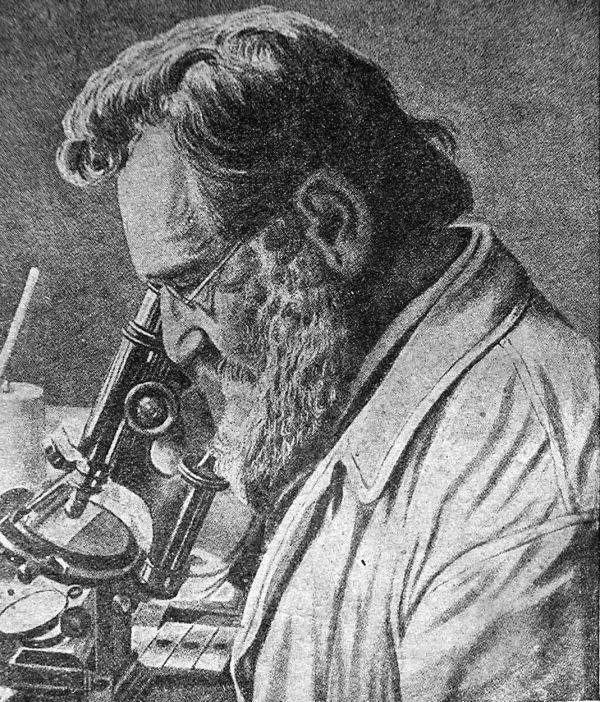
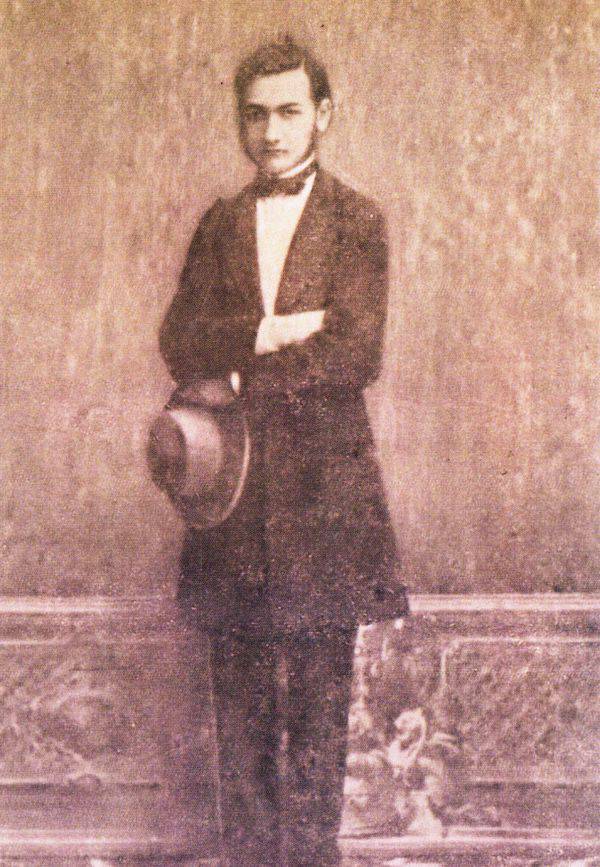
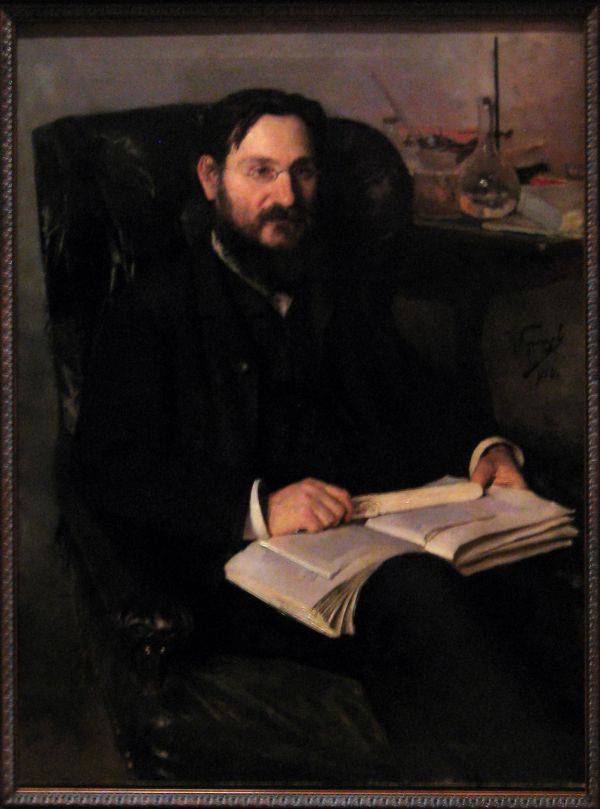
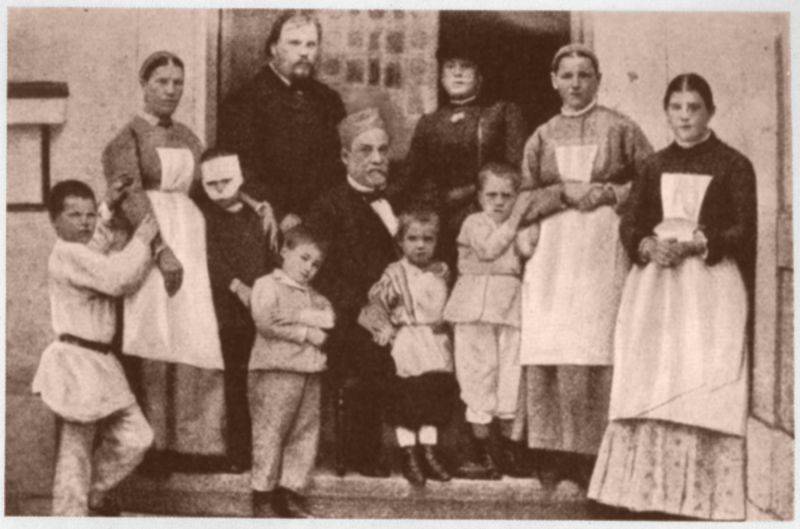
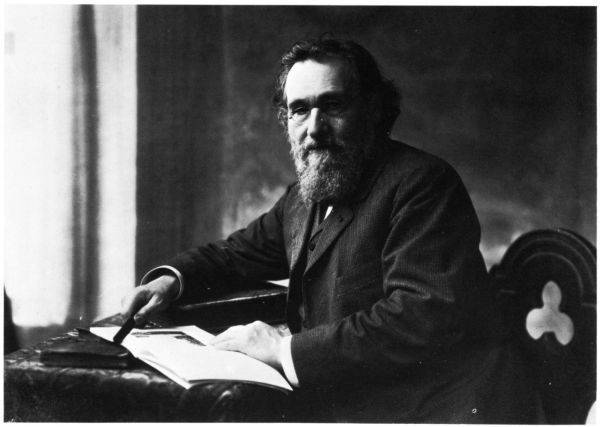
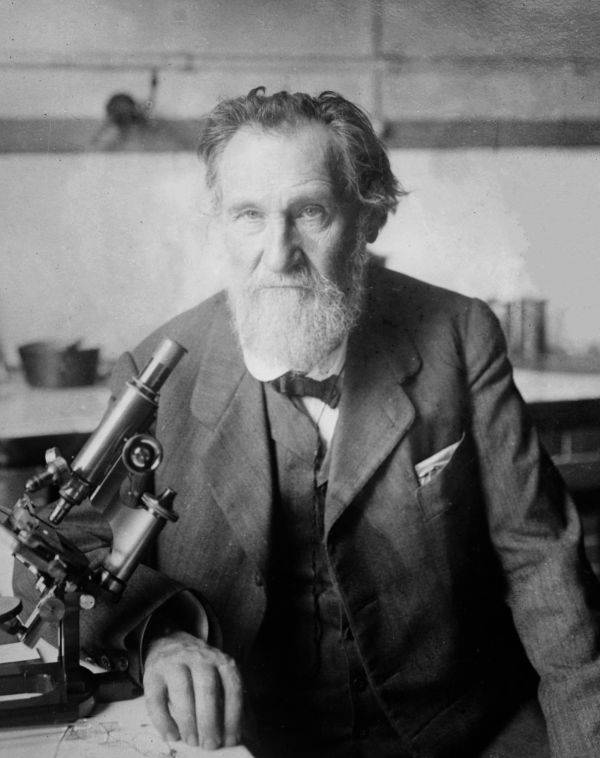
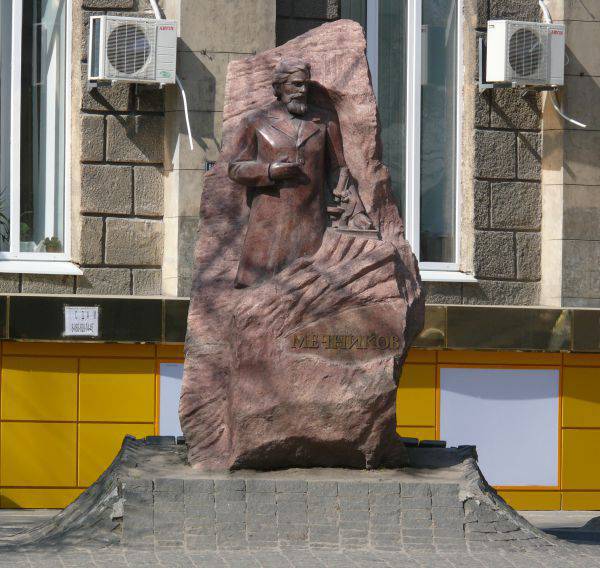
Information